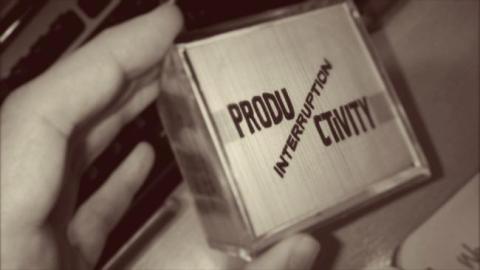Embarking on your graduate career can be exciting. You’re designing your own experiments, directing your own scientific inquiry, uncovering new knowledge. There’s so much to learn! It also comes with a unique set of challenges. There is a lack of structure – there’s no set end time, and the milestones along the way aren’t rigidly defined and often depend on you. You’re expected to work more independently than you have in the past. In addition, you may receive infrequent feedback on your work, and what you do hear is often critical.
Expectations are a natural part of life and are important because they provide clarity, help provide direction, and offer ways for accountability to be maintained. Despite expectations being essential, they can be complex to navigate. Below are three components that can make expectations challenging:
The pandemic has brought with it numerous hours to fill with some otherwise atypical activities. Admittedly, I’ve found myself turning to streaming series/shows far too often. It has certainly served as distraction and respite from other challenges, but it also allowed me time to catch up on desired viewing. Brené Brown’s The Call to Courage video on Netflix was at the top of my list. (Full disclosure, the video has lots of storytelling at the beginning and research findings shared near the end). Dr.
While the past two years mark a time of profound loss, they also mark a time of extraordinary social transformation, particularly in the virtual realms. After the initial shock and grief that the world felt in lockdown, we collectively experienced the widespread rekindling of old hobbies, mass Twitter activism, many failed attempts to make Dalgona coffee, and a near-universal feeling of meh.
Marie Kondo is the author of the extremely popular book The Life-Changing Magic of Tidying Up. The popularity of this book has even been turned into a Netflix series called “Tidying Up”. In both the book and the series, this world-renowned organizational consultant, helps people declutter and find organization and balance in their homes and hopefully by extension their lives.

Recently, we received wellness tips from NIH Director, Dr. Collins. In case you missed it, you can check it out here. Part of that discussion revolved around how establishing a career in science and maintaining a healthy work-life balance can be stressful.

One of the most predictable workplace variables that successful scientists can learn to control for is an unexpected work interruption. These breaks in service can range from changes in staffing and equipment malfunctions to anticipated breaks in the work due to the economy and/or inclement weather. Naturally, during such events (predictable or not), you will experience a range of reactions including awkward excitement, anxiety, fear, panic, frustration, anger or even avoidance and denial.
Blog written by Michael J. Sheridan, MSW, PhD, Special Advisor for Diversity and Wellness Programs, [email protected] It is December 2017, and while many are preparing for holidays, if you are trainee, you are probably asking yourself, “I haven’t heard back from a number of medical schools, is there something I can do to move them along? Should I assume I won’t get in? Will I get an interview at the graduate programs that I applied to?

In 2014, to recognize Lesbian, Gay, Bisexual, Transgender, and Queer (LGBTQ) Pride month, the OITE Careers Blog published a post addressing job search and work environments for LGBTQ scientists called Happy Pride! This blog issue provides useful resources for scientists, their families, and allies in support of inclusive career decision-making and work environments.

